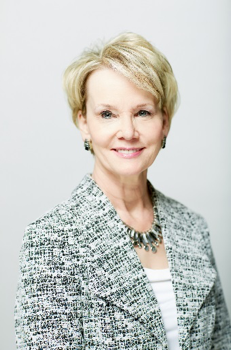No matter where you are in your allied health career, Michelle Heller, CMA, has some insights that could help you on your path.
Michelle has been an advocate for medical assistants over the last 35 years at both the local and national level. She served as the medical assisting program director at a career college in Columbus,  Ohio for 17 years before being promoted to director of education, where she managed four allied health departments. She’s also a published author and has been involved in many projects, including a clinical medical assisting textbook, handbook and pocket guide. Today, we’re fortunate to have her on the NHA team as an allied health content strategist.
Ohio for 17 years before being promoted to director of education, where she managed four allied health departments. She’s also a published author and has been involved in many projects, including a clinical medical assisting textbook, handbook and pocket guide. Today, we’re fortunate to have her on the NHA team as an allied health content strategist.
We sat down with Michelle in preparation for Medical Assistants Recognition Week to get answers to some of your most pressing questions about the allied health industry.
Keep reading for her valuable insights.
1. What’s your best advice for a career in healthcare?
Remember the magnitude of your position. Every day, you have the ability to make a difference in the lives of your patients and sometimes members of the patient’s family. By being an active listener and paying attention to all of the little details, you are able to assist the provider in formulating a diagnosis and assist the patient in attaining the resources necessary to remain compliant. You are able to respond quickly when the patient is fearful or when the patient’s spouse is at their wit’s end and needs a quick resolve. You have the power to improve the way that patients are served.
2. What’s been one key change you’ve noticed in the healthcare industry?
The single most significant change that I personally have observed in healthcare is the computerization of health records. We don’t spend hours looking for charts or trying to decipher a provider’s handwriting like we did before EMR. We are able to instantly share information in the chart with other providers as well as our patients — simply by clicking a button. We now are able to generate reports that help providers determine treatment plans that are most effective for specific patient populations. This all equates to better efficiency, improved patient safety and better outcomes for all patients.
3. What's something that has stayed consistent in the healthcare field?
The technology that we use to conduct diagnostic testing, the treatments that we render, and the way that we deliver healthcare is continuously evolving. The only thing that stays consistent in healthcare is that patients want to be cared for and know that we are constantly advocating on their behalf. They want to know that we will keep their information confidential and will always keep our promises. They want to know that we will never judge them and that their race or socioeconomic status makes no difference in the way that we extend care. Patients want to know that we will take extra steps to reduce pain, ensure modesty, and that their safety is always paramount.
4. How do you keep informed?
By attending conferences and seminars and by taking advantage of the continuing education (CE) offerings that are available by my certification provider. I also pay attention to topics in the news that may impact healthcare and conduct extended research when I hear of changes coming down the pike.
5. How do you think certification has benefited you?
Certification has opened doors that wouldn’t have been opened otherwise. It validates my knowledge with my employer and patients and confirms that I have the skillset necessary to be in the role that I am in. It also forces me to stay up to date with changes in the industry by requiring me to complete a set number of CEs each year.
6. What’s kept you motivated through your career?
A passion to help others. As someone that has been in healthcare/healthcare education for over 30 years, I love serving others.
7. What would you tell anyone interested in pursuing a certification?
It is one of the most important career decisions that you will ever make. Here are some helpful tips for the certification journey:
- Make certain that the certification provider is accredited by a reputable accreditation organization like the National Commission for Certifying Agencies (NCCA).
- Start preparing for certification early in the training process. Purchase certification prep products* at the beginning of your program rather than the end of the program so that the prep materials can be used in concert with your training materials.
- At the end of your training, review the prep materials again and go back through your text and workbooks to make certain you are not just relying on one product to prepare for testing.
- Schedule your test before you finish the program and take it on the earliest date possible. This will help to keep information fresh for test day.
If you don’t obtain your certification on the first try, don't be discouraged. Perform an assessment to figure out why you may have failed the exam. Did you spend enough time preparing? Were you overly tired the day you took the exam? Finally, when that message comes across that you passed the test, reward yourself on a job well done. You worked really hard to get here, now enjoy your new title!
*The purchase of NHA exam preparation materials is not required to sit for any NCCA-accredited certification exam and use does not guarantee a passing score on an exam. All NHA exams are NCCA-accredited.

